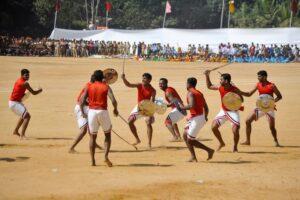In recent years, there has been a remarkable revival of interest in traditional sports, signaling a return to the roots of athletic competition.

This resurgence is not merely a nostalgic journey into the past but a vibrant celebration of heritage, skill, and enduring passion.
One key factor behind this revival is the growing recognition of the cultural significance embedded in traditional sports. These age-old games, often passed down through generations, carry a rich tapestry of history and values. Communities around the world are rediscovering the joy of participating in and spectating these sports, creating a sense of unity and shared identity.
In the era of modern sports dominated by high-tech equipment and billion-dollar franchises, the allure of traditional sports lies in their simplicity and accessibility. Whether it’s a game of Kabaddi in India, Hurling in Ireland, or Sepak Takraw in Southeast Asia, these sports require minimal equipment, making them accessible to people of all ages and socioeconomic backgrounds. This inclusivity fosters community engagement and grassroots participation.
Furthermore, traditional sports offer a distinct contrast to the fast-paced, commercialized nature of contemporary athletics. In a world where sports have become synonymous with big business, the return to traditional games emphasizes the intrinsic value of sportsmanship, skill, and camaraderie.
